
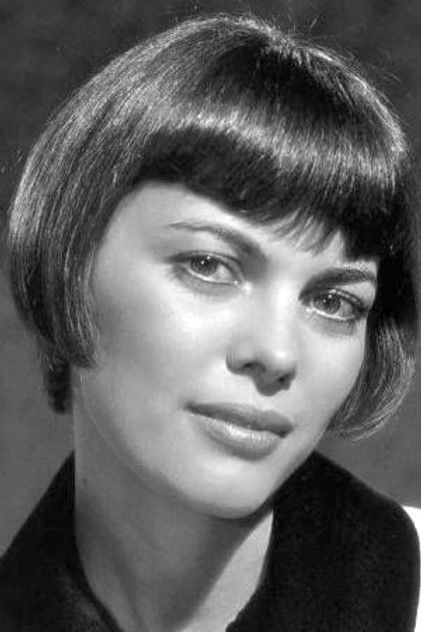
Mireille Mathieu
Born: July 22, 1946
in Avignon, Vaucluse, France
in Avignon, Vaucluse, France
Mireille Mathieu (born 22 July 1946), is a French singer. She has recorded over 1200 songs in eleven languages, with more than 122 million records sold worldwide.
Mireille Mathieu was born on 22 July 1946 in Avignon, France, the eldest daughter of a family of fourteen children; the youngest brother was born after she moved to Paris. Her father Roger and his family were native to Avignon, while her mother Marcelle-Sophie (née Poirier) was from Dunkirk. She arrived in Avignon in 1944 as a refugee from World War II after her grandmother had died, and her mother went missing. Roger, with his father Arcade, ran the family stonemason shop just outside the Saint-Véran cemetery main gate. The Mathieu family have been stonemasons for four generations. Today the shop is named Pompes Funèbres Mathieu-Mardoyan, owned and managed by her sister Réjane's family.
The Mathieu family lived in poverty, with a huge improvement in their living conditions in 1954, when subsidized housing was built in the Malpeigné quarter near the cemetery. Then again in 1961 they moved to a large tenement in the Croix des Oiseaux quarter southeast of the city.
Roger had once dreamed of becoming a singer, but his father Arcade disapproved, inspiring him to have one of his children learn to sing with him in church. Mireille included her father's operatic voice on her 1968 Christmas album, where it was mixed in with the Minuit Chrétiens song. Mireille's first paid performance before an audience, at age four, was rewarded with a lollipop when she sang on Christmas Eve 1950 during Midnight Mass. A defining moment was seeing Édith Piaf sing on television.
Mireille performed poorly in elementary school because of dyslexia, requiring an extra year to graduate. She was born left-handed, and her teachers used a ruler to strike her hand each time she was caught writing with it. She became right-handed, although her left hand remains quite animated while singing. She has a fantastic memory, and never uses a prompter on stage. Abandoning higher education, at age 14 (1961), and after moving to Croix des Oiseaux, she began work in a local factory in Montfavet (a suburb southeast of town) where she helped with the family income and paid for her singing lessons. Popular at work, she often sang songs at lunch, or while working. Like her parents, she is a short woman at 1.52 m (5 feet) in height. Her sister Monique, born on 8 July 1947, began work at the same factory a few months later. Both were given bicycles on credit to commute with, making for very long days, and many bad memories of riding against the mistral winds. The factory went out of business, so Mireille and two sisters (Monique, and Christiane) became youth counselors at a summer camp before her rise to fame, a summer where she had her fortune told by Tarot cards by an old Gypsy woman, saying she would soon mingle with Kings and Queens. ...
Source: Article "Mireille Mathieu" from Wikipedia in English, licensed under CC-BY-SA 3.0.
Mireille Mathieu was born on 22 July 1946 in Avignon, France, the eldest daughter of a family of fourteen children; the youngest brother was born after she moved to Paris. Her father Roger and his family were native to Avignon, while her mother Marcelle-Sophie (née Poirier) was from Dunkirk. She arrived in Avignon in 1944 as a refugee from World War II after her grandmother had died, and her mother went missing. Roger, with his father Arcade, ran the family stonemason shop just outside the Saint-Véran cemetery main gate. The Mathieu family have been stonemasons for four generations. Today the shop is named Pompes Funèbres Mathieu-Mardoyan, owned and managed by her sister Réjane's family.
The Mathieu family lived in poverty, with a huge improvement in their living conditions in 1954, when subsidized housing was built in the Malpeigné quarter near the cemetery. Then again in 1961 they moved to a large tenement in the Croix des Oiseaux quarter southeast of the city.
Roger had once dreamed of becoming a singer, but his father Arcade disapproved, inspiring him to have one of his children learn to sing with him in church. Mireille included her father's operatic voice on her 1968 Christmas album, where it was mixed in with the Minuit Chrétiens song. Mireille's first paid performance before an audience, at age four, was rewarded with a lollipop when she sang on Christmas Eve 1950 during Midnight Mass. A defining moment was seeing Édith Piaf sing on television.
Mireille performed poorly in elementary school because of dyslexia, requiring an extra year to graduate. She was born left-handed, and her teachers used a ruler to strike her hand each time she was caught writing with it. She became right-handed, although her left hand remains quite animated while singing. She has a fantastic memory, and never uses a prompter on stage. Abandoning higher education, at age 14 (1961), and after moving to Croix des Oiseaux, she began work in a local factory in Montfavet (a suburb southeast of town) where she helped with the family income and paid for her singing lessons. Popular at work, she often sang songs at lunch, or while working. Like her parents, she is a short woman at 1.52 m (5 feet) in height. Her sister Monique, born on 8 July 1947, began work at the same factory a few months later. Both were given bicycles on credit to commute with, making for very long days, and many bad memories of riding against the mistral winds. The factory went out of business, so Mireille and two sisters (Monique, and Christiane) became youth counselors at a summer camp before her rise to fame, a summer where she had her fortune told by Tarot cards by an old Gypsy woman, saying she would soon mingle with Kings and Queens. ...
Source: Article "Mireille Mathieu" from Wikipedia in English, licensed under CC-BY-SA 3.0.
Movies for Mireille Mathieu...
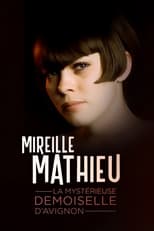
Title: Mireille Mathieu, la mystérieuse demoiselle d'Avignon
Character: Self
Released: July 21, 2023
Type: Movie

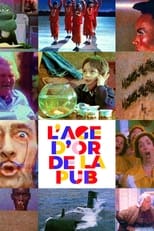
Title: L'Âge d'or de la pub
Character: Self (archive footage)
Released: June 2, 2023
Type: Movie


Title: Il était une fois Champs-Élysées
Character: Self (archive footage)
Released: December 21, 2022
Type: TV

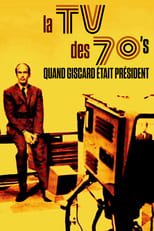
Title: La TV des 70's : Quand Giscard était président
Character: Self (archive footage)
Released: January 7, 2022
Type: Movie
In May 1974, Valéry Giscard d'Estaing became President of the Republic and wanted to bring about a new era of modernity. One of his first decisions was to break up the ORTF with the creation of three new television channels: TF1, Antenne 2 and FR3. Three new public channels but autonomous and competing. It is a race for the audience which is engaged then, and from now on the channels will make the war! This competition will give birth to a real golden age for television programs, with variety shows in the forefront. The stars of the song are going to invade the living rooms of the French for their biggest pleasure. This unedited documentary tells the story of the metamorphosis of this television of the early 1970s, between freedom of tone, scandals, political intrigues and programs that have become mythical.

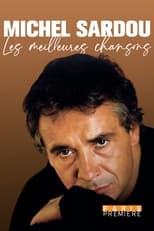
Title: Michel Sardou, les meilleures chansons
Character: Self (archive footage)
Released: May 9, 2021
Type: Movie


Title: Concerto di Natale in Vaticano 2019
Character: Self
Released: December 24, 2019
Type: Movie

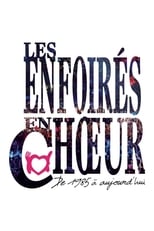
Title: Les Enfoirés - Les Enfoirés en chœur de 1985 à aujourd'hui
Released: December 13, 2014
Type: Movie






Title: Willkommen bei Carmen Nebel
Character: Self
Released: January 31, 2004
Type: TV

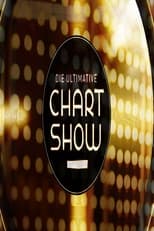


Title: Star Academy
Character: Self
Released: October 20, 2001
Type: TV
Star Academy is a French reality television show produced by the Dutch company Endemol. It consists of a contest of young singers. It spawned an equally successful show in Quebec called Star Académie. It is broadcast on TF1. At the end of each season, selected contestants would go on tour around France, Morocco, Switzerland, Belgium, Tunisia, and other French-speaking countries.




Title: Beckmann
Character: Self
Released: January 25, 1999
Type: TV
Reinhold Beckmann hosts a weekly talk show.




Title: Vivement dimanche prochain
Character: Self
Released: September 11, 1998
Type: TV

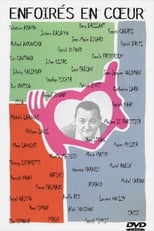




Title: Die Feste mit Florian Silbereisen
Character: Self
Released: June 2, 1994
Type: TV


Title: Musik liegt in der Luft
Character: Self - Singer
Released: February 2, 1991
Type: TV

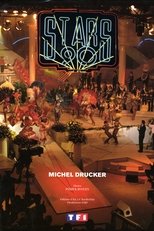





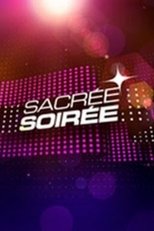















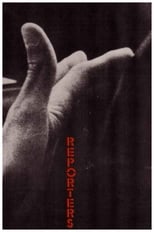
Title: Reporters
Character: Self
Released: June 10, 1981
Type: Movie
The co-founder of the Gamma press agency, Raymond Depardon, created this documentary of press photographers in Paris and their subjects by following the photographers around for one month, in October, 1980. In-between long hours waiting for a celebrity to emerge from a restaurant or a hotel, boredom immediately switches to fast action as the cameras click and roll when the person appears. The reaction to the gaggle of photographers is as varied as the people they often literally chase all around town. While some of the celebrities, such as Jacques Chirac who was mayor of Paris at the time, are perceived as comical caricatures, others are shown simply going about ordinary pursuits - including Catherine Deneuve, Gene Kelly, and Jean-Luc Godard.








Title: Peter Alexander: Wir gratulieren
Character: Self
Released: November 29, 1979
Type: TV

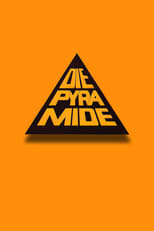

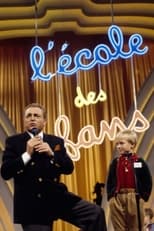
Title: Fan School
Character: Self
Released: January 30, 1977
Type: TV
Host Jacques Martin invites different talented children from various backgrounds to showcase their beautiful voices. The participants entertain and wow the audience with their lovely performances.

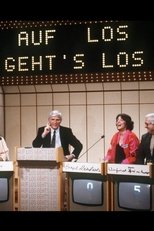

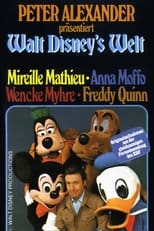
Title: Peter Alexander presents Walt Disney's World
Character: Gast
Released: December 2, 1976
Type: Movie




Title: Numéro un
Character: Self (archive footage)
Released: April 5, 1975
Type: TV
A French variety show.


Title: Numéro un
Character: Self - Host
Released: April 5, 1975
Type: TV
A French variety show.


Title: Numéro un
Character: Self
Released: April 5, 1975
Type: TV
A French variety show.



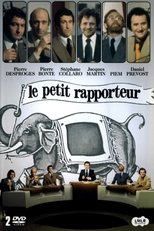


Title: Les Rendez-vous du dimanche
Character: Self
Released: January 12, 1975
Type: TV
A talk show presented by Michel Drucker


Title: Midi Première
Character: Self
Released: January 6, 1975
Type: TV
Midi Première is a French variety show presented by Danièle Gilbert, directed by Jacques Pierre and broadcast from January 6, 1975 until January 1, 1982 on TF1. The program was generally broadcast between 12:15 p.m. and 12:55 p.m., then giving way to the 1:00 p.m. TV news. However, the broadcast schedule could change, depending on the guests, and the setting where the recording of the program was shot. Certain performances by artists who have become cult like the one where Ringo jostles with a demonstrator in interpretation (1977), that of Dalida with the title There is always a song with the soundtrack that does not start, twice, at the right speed (1978), Claude François and his Clodettes, who, in the provinces, are unable to join "the set" in order to interpret his song, the latter being taken by the crowd of delirious fans (summer 1977) . The group Supertramp performed there with the title "Dreamer" on March 8, 1975.







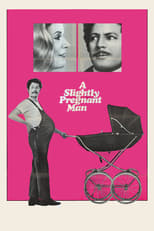
Title: A Slightly Pregnant Man
Character: Herself
Released: September 20, 1973
Type: Movie
Marco Mazzetti, a driving instructor, lives with his wife Irène and their young son. After a series of nauseous dizzy spells he goes to the doctor and discovers that he is four-months pregnant. Marco then becomes internationally famous.

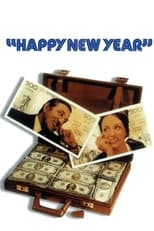
Title: Happy New Year
Character: Self
Released: April 13, 1973
Type: Movie
Released from prison under a New Year amnesty, a criminal tries to pick up the threads of a life changed not only by his daring plan to rob a jewelry store in out-of-season Cannes, but also by a very special someone he met there.




Title: Hätten Sie heut’ Zeit für mich?
Character: Self
Released: June 1, 1972
Type: TV



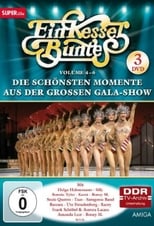
Title: A Kettle of Colour
Character: Self - Musician
Released: January 29, 1972
Type: TV
The show was meant to compete with those on West German television. To this end it was fairly successful even attracting a following in parts of West Germany which could receive Eastern TV. Its production values were high. Apart from song and dance numbers and appearances from East German celebrities, almost every broadcast featured well-known stars from the west, often after their popularity had peaked in their home countries.


Title: Le Grand Échiquier
Character: Self - Main Guest
Released: January 12, 1972
Type: TV




Title: Anneliese Rothenberger gibt sich die Ehre
Character: Self
Released: December 25, 1971
Type: TV







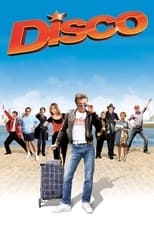
Title: Disco
Character: Self
Released: February 13, 1971
Type: TV
Disco was a pop music program that aired in Germany on the ZDF network from 1971 to 1982. It generally aired on the first Saturday of each month at 7:30PM, each show running 45 minutes. 133 shows were produced. The show was hosted by German actor and comedian Ilja Richter. Its lesser known predecessor on ZDF, 4-3-2-1 Hot & Sweet was aired between 1966 and 1970, presenters included Ilja Richter and Suzanne Doucet. Disco generally served a younger pop-oriented audience compared to ZDF's Hitparade, and until 1972, its main competitor was Beat-Club, followed by Musikladen, both on ARD.
Repeats of Disco have been aired since 1984 on ZDF Musikkanal, after its closedown in 1989 on 3sat. Since 2004, the digital ZDF Theaterkanal aired repeats of the entire series. In 2007, ZDF Dokukanal began to air reruns, starting with episodes from 1975 and also multiple repeats of the series have been shown on hit24 in 2008.
The show focussed on chart hits current at the time of airing, giving about equal airtime to international pop music and German Schlager. Despite its name, it did not particularly focus on disco music although it featured many disco hits as long as they were chart relevant..








Title: Peter Alexander präsentiert Spezialitäten
Character: Self
Released: March 9, 1969
Type: TV


Title: Die ZDF-Hitparade
Character: Self
Released: January 18, 1969
Type: TV
The ZDF-Hitparade, or Hitparade for short, by German TV channel ZDF, was one of the most popular and most well-known music television series presenting mostly German Schlager.



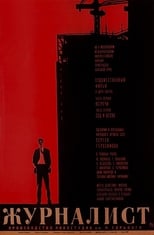
Title: The Journalist
Character: Self
Released: September 23, 1967
Type: Movie
A successful young journalist goes to a small industrial city in order to understand the written complaints of a certain girl. When he met the author of the letters and the girl whom she had slandered, he didn't immediately understand the complexity of the situation and the measure of responsibility to those whom he was obliged to protect...














Title: The Danny Kaye Show
Character: Self
Released: September 25, 1963
Type: TV
The Danny Kaye Show is an American variety show hosted by Danny Kaye that aired on CBS from 1963 to 1967 on Wednesday nights. Directed by Robert Scheerer, the show premiered in black-and-white, but later switched to color broadcasts. At the time, Kaye was at the height of his popularity, having starred in a string of successful films in the 1940s and '50's, made successful personal appearances at such venues as the London Palladium, and appeared many times on television. His most recent films had been considered disappointing, but the television specials he starred in were triumphant, leading to this series. Prior to his television and film career, Kaye had made a name for himself with his own radio show, and numerous other guest appearances on other shows.

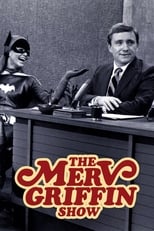
Title: The Merv Griffin Show
Character: Self
Released: October 1, 1962
Type: TV
The Merv Griffin Show is an American television talk show, starring Merv Griffin. The series ran from October 1, 1962 to March 29, 1963 on NBC, September 20, 1965 to August 15, 1969 in first-run syndication, from August 18, 1969 to February 11, 1972 at 11:30 PM ET weeknights on CBS and again in first-run syndication from February 14, 1972 to September 5, 1986.


Title: The Mike Douglas Show
Character: Self
Released: December 11, 1961
Type: TV
The Mike Douglas Show is an American daytime television talk show hosted by Mike Douglas that originally aired only in the Cleveland area during much of its first two years on the air. It then went into syndication in 1963 and remained on television until 1982. It was distributed by Westinghouse Broadcasting and for much of its run, originated from studios of two of the company's TV stations in Cleveland and Philadelphia.



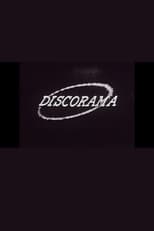





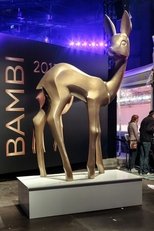
Title: Bambi Awards
Character: Self
Released: January 1, 1948
Type: TV
The Bambi, often called the Bambi Award and stylised as BAMBI, is a German award presented annually by Hubert Burda Media to recognize excellence in international media and television to personalities in the media, arts, culture, sports, and other fields "with vision and creativity who affected and inspired the German public that year", both domestic and foreign. First held in 1948, it is the oldest media award in Germany. The trophy is named after Felix Salten's book Bambi, A Life in the Woods and its statuettes are in the shape of the novel's titular fawn character. They were originally made of porcelain until 1958, when the organizers switched to using gold, with the casting done by the art casting workshop of Ernst Strassacker in Süßen.
